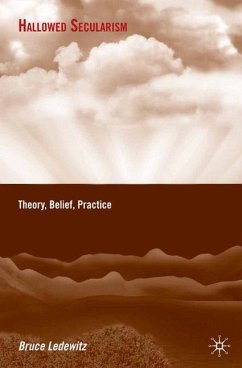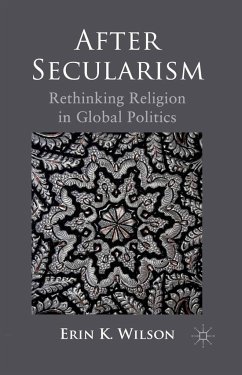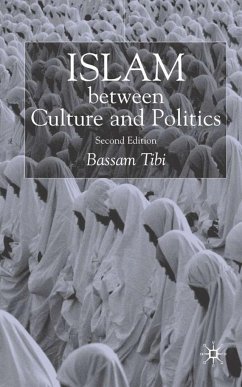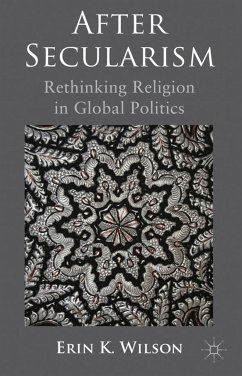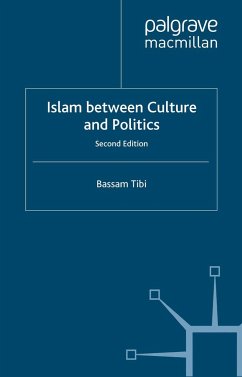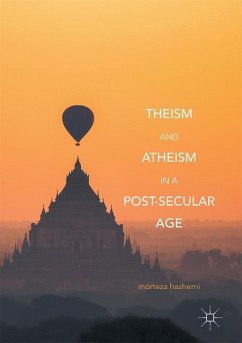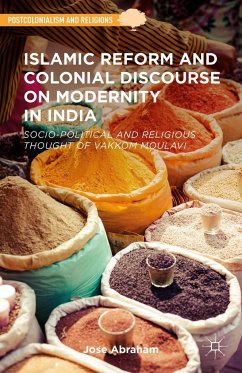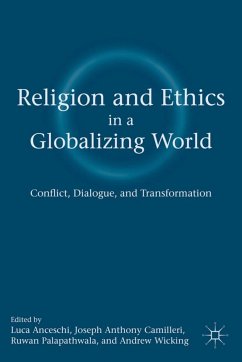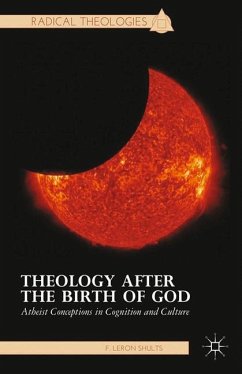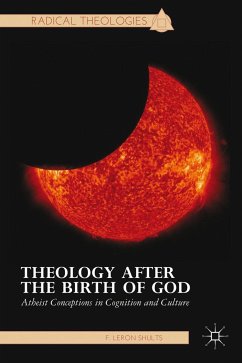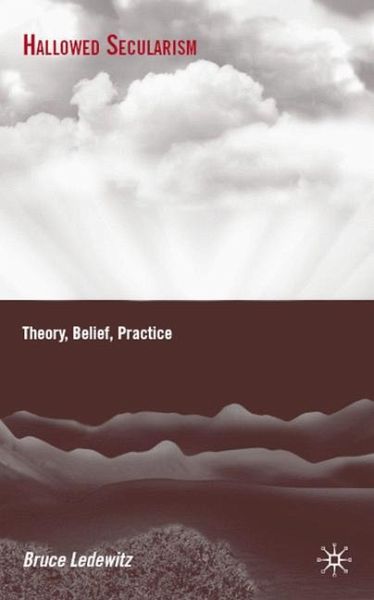
Versandkostenfrei!
Versandfertig in 6-10 Tagen
Weitere Ausgaben:

PAYBACK Punkte
19 °P sammeln!





Bruce Ledewitz proposes a Reformation in secular thinking. He shows that in opposition to today's aggressive Atheism, religious sources are necessary if secularism is to promote fulfilling human relationships and peaceful international relations. Amid signs that secularism is growing in unhealthy ways, Ledewitz proposes a new secular way to live.
BRUCE LEDEWITZ is Professor of Law at Duquesne University in Pittsburgh, USA. He is the author of the widely-praised book, American Religious Democracy: Coming to Terms with the End of Secular Politics and is a former Secretary of the National Coalition to Abolish the Death Penalty.
Produktdetails
- Verlag: Palgrave Macmillan / Palgrave Macmillan US / Springer Palgrave Macmillan
- Artikelnr. des Verlages: 978-0-230-61402-4
- 2009
- Seitenzahl: 240
- Erscheinungstermin: 24. März 2009
- Englisch
- Abmessung: 222mm x 145mm x 18mm
- Gewicht: 425g
- ISBN-13: 9780230614024
- ISBN-10: 0230614027
- Artikelnr.: 28242176
Herstellerkennzeichnung
Palgrave Macmillan
Tiergartenstr. 17
69121 Heidelberg
ProductSafety@springernature.com
"Secularism is western society's new reformation, sweeping away the influence of bad religion - but the more it dominates, the more itreveals its weakness and failings.Ledewitz argues not for an end of secularism, but for a reform ofsecularism itself, to rediscover the hope, vision and inspirationthat feed the human soul." - Michael Hampson, Author of God without God
"Ledewitz has written a remarkably suggestive and daring book that deserves serious and widespread attention. He begins with a recognition of a practical failure on two sides of the question of reason and revelation. His argument has broad appeal, because he gives compelling articulation to a ground held by many who lack the categories to name what is religiously
"Ledewitz has written a remarkably suggestive and daring book that deserves serious and widespread attention. He begins with a recognition of a practical failure on two sides of the question of reason and revelation. His argument has broad appeal, because he gives compelling articulation to a ground held by many who lack the categories to name what is religiously
Mehr anzeigen
possible and required in a post-modern world." - Walter Brueggemann, Professor Emeritus, Columbia Theological Seminary
"In this thoughtful work, Ledewitz asks all the right questions. He then puts forth an ambitious platform upon which all people, religious and secular, can meet to seek out, work out, and live out answers. His proposal is a useful challenge to everyone. The task is to be true to the open and inquiring spirit of our age while remaining open to the Wisdom of the Ages. To lose either is to lose our hope for the future, our integrity, or both. All religious traditions and non-religious perspectives and the spaces in-between have a place in this arrangement. So with the aid of all the communications technologies available to us today, let the conversation begin!" - Rabbi Carl Choper, Executive Director, The Religion and Society Center, Harrisburg, PA
"At a time when new atheist polemics are having some success at setting the secularist agenda, Hallowed Secularism is refreshing and instructive. Ledewitz neither dismisses nor demonizes religion, but rather shows a keen sense for the formative influence of Judaism and Christianity on contemporary western culture, of how secularists today might benefit from continued constructive engagement with doctrines and virtues - such as sin and obedience - inherited from these traditions. The book exhibits an open, self-critical and realistic attitude from which everyone, religious or secular, can learn." - Tyler Roberts, Professor of Religious Studies, Grinnell College; Author of Contesting Spirit: Nietzsche, Religion, Affirmation (1998)
"In this thoughtful work, Ledewitz asks all the right questions. He then puts forth an ambitious platform upon which all people, religious and secular, can meet to seek out, work out, and live out answers. His proposal is a useful challenge to everyone. The task is to be true to the open and inquiring spirit of our age while remaining open to the Wisdom of the Ages. To lose either is to lose our hope for the future, our integrity, or both. All religious traditions and non-religious perspectives and the spaces in-between have a place in this arrangement. So with the aid of all the communications technologies available to us today, let the conversation begin!" - Rabbi Carl Choper, Executive Director, The Religion and Society Center, Harrisburg, PA
"At a time when new atheist polemics are having some success at setting the secularist agenda, Hallowed Secularism is refreshing and instructive. Ledewitz neither dismisses nor demonizes religion, but rather shows a keen sense for the formative influence of Judaism and Christianity on contemporary western culture, of how secularists today might benefit from continued constructive engagement with doctrines and virtues - such as sin and obedience - inherited from these traditions. The book exhibits an open, self-critical and realistic attitude from which everyone, religious or secular, can learn." - Tyler Roberts, Professor of Religious Studies, Grinnell College; Author of Contesting Spirit: Nietzsche, Religion, Affirmation (1998)
Schließen
Für dieses Produkt wurde noch keine Bewertung abgegeben. Wir würden uns sehr freuen, wenn du die erste Bewertung schreibst!
Eine Bewertung schreiben
Eine Bewertung schreiben
Andere Kunden interessierten sich für




